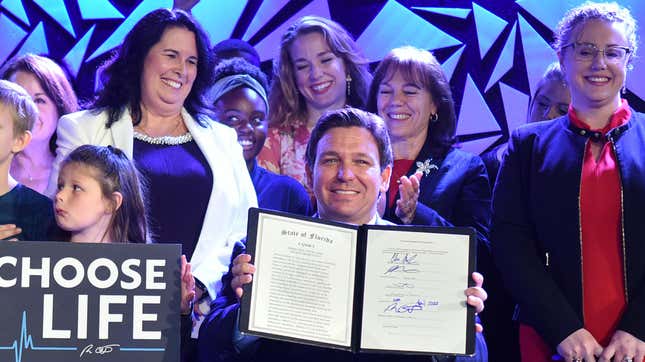Synagogue Sues Florida Over Abortion Ban, Which Rabbi Says Violates Religious Freedom
Unfortunately, thanks to a conservative supermajority on the state supreme court, this lawsuit isn't necessarily a slam dunk for abortion rights.
AbortionPolitics

Florida passed a 15-week abortion ban that is set to take effect on July 1 and, in an incredibly subtle move, Gov. Ron DeSantis signed the bill into law at an Evangelical Christian church. Currently, abortion is available in the state through 24 weeks, and Roe v. Wade holds that states can’t ban abortion before that point, but with the Supreme Court set to overturn Roe any day now, the Florida law could have legal footing.
The American Civil Liberties Union, ACLU of Florida, Center for Reproductive Rights, and Planned Parenthood filed a lawsuit against Florida on June 1. And now, a synagogue is suing the state, claiming that the law violates the religious freedom of Jewish Floridians, as well as the state constitution’s privacy protections.
-

-

-

-

-

-

-

-

-

-

-

-

-

-

-

-

-

-

-

-

-

-

-

-

-

-

-

-

-

-

-

-

-

-

-

-

-

-

-

-








































